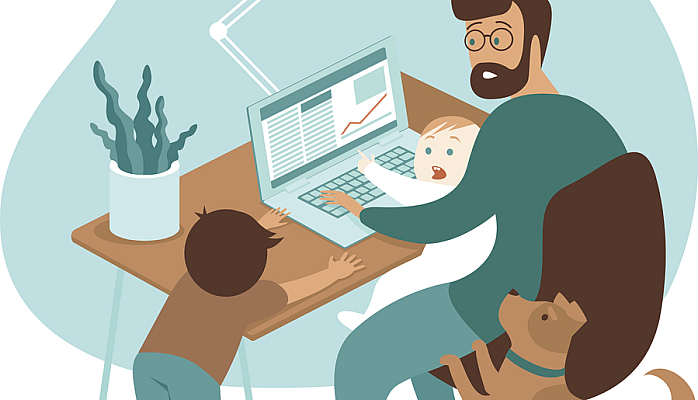
Step by Step Foreclosure Guide for Beginners
If you want to buy a foreclosed property, it's important to know what to expect and how to go about it. This step-by-step guide will help you get started.
The first thing to do is to learn about foreclosures and how they affect your credit score. Then, contact your lender and work out a plan for making payments.
1. Find a Lawyer
Getting help early is essential if you want to avoid foreclosure. The sooner you contact a lawyer, the better your chances are of negotiating a solution to keep your home or winning the case in court.
You may also consider working with a legal aid office if you are low-income and qualify for free or reduced-cost services. These offices offer foreclosure counseling, pro bono services and referrals to attorneys who can help you.
Foreclosure lawyers are specialized professionals with an extensive knowledge of the law regarding foreclosures. They can represent your best interests and ensure that the lender is following state and federal laws.
If you have questions about foreclosure law or want to know how long it will take to complete the process, you should schedule a consultation with a foreclosure attorney. You should also ask about their experience handling cases similar to yours and whether they have helped people in your situation before.
The lawyer should be willing to answer your questions and give you an idea of how much the legal fees will be. The lawyer should also be willing to provide references.
Your lawyer should be familiar with the law in your area, so ask if they are an active member of your local or state bar association. Most bar associations have a search tool that can help you find attorneys in your area by specialty.
You should also ask for referrals to foreclosure attorneys from friends and family who have hired them in the past. These references can be very helpful and provide an insight into the attorney's work.
Depending on your financial circumstances, you should also consider hiring a bankruptcy lawyer. Bankruptcy is a very complex legal process that can take years to complete, so it's important to have an experienced attorney by your side.
2. Find a Lender
A foreclosure is a legal process where a bank sells your home to pay off a mortgage debt. The process can be very expensive and it may take years before you can buy another home again, so it's important to plan ahead.
The shortest and most cost-effective way to avoid a foreclosure is to negotiate with your lender about the loan amount you can afford and make sure you are on top of all your payments. This will also help you avoid any unnecessary escalation in interest rates that could result in an even bigger bill down the road.
One of the best ways to start the conversation with a lender is to use an online mortgage calculator to find out how much money you can borrow. Next, check your credit report for any items that might cause you to be denied a loan.
Now, it's time to find a lender that's willing to make you a good offer on your dream home. You might want to consider working with a real estate agent who can help you with the negotiation process.
The most efficient way to do this is by getting pre-approved for a mortgage before you even begin looking at homes. This will give you the confidence to make an offer and be more likely to get a better deal on your new home. The most important item is a decent mortgage calculator to measure your credit score, income, and current mortgage rate so you can see just how much you might be able to afford. The best mortgage calculators allow you to input the size of your monthly payment, your down payment, and your credit score to find out just how much you can afford to borrow.
3. Make an Offer
When a homeowner stops making their mortgage payments, the lender takes legal action to take possession of their property. This is called foreclosure and it can be a difficult process.
Buying a foreclosed home can be a great way to save money, but it is important to consider the pros and cons before committing to a purchase. It can be a good idea to work with a real estate agent who has experience in foreclosures.
First, get pre-approved for a mortgage loan on the home you want to buy. This will help you make an offer that is more attractive to the bank or lender, which will want to recover the full amount of the mortgage plus interest.
You should also request a home inspection before making an offer. If there are any problems found, renegotiate the terms of your offer and ask to have those items repaired before closing.
Finally, you can submit multiple offers on a single foreclosed property, which may increase your chances of winning the bid. This can be particularly useful if there are multiple other offers on the property, and it can be a great way to find out if you're making a mistake with your initial offer.
Foreclosures are a popular market for homebuyers, but they can be hard to negotiate. This is especially true if there are other interested buyers, such as professional home flippers or real estate investors. In addition, foreclosed homes are usually sold "as is" and aren't likely to be repaired. This can mean you might have to pay for any repairs yourself. For this reason, it's important to negotiate with the seller before you make an offer on a foreclosed home.
4. Negotiate the Offer
A foreclosure is the process by which a bank seizes a home after the borrower has missed several mortgage payments. Often, homeowners miss mortgage payments because of financial hardships such as unemployment, divorce or health problems. A foreclosure can cause a lot of emotional and financial stress, but there are things you can do to avoid it.
The first step is to find a house that’s for sale. This can be done by searching the Internet or by contacting real estate agents. When you locate a property that fits your criteria, make an offer. Remember, a good deal on a foreclosed home can be difficult to come by, so you’ll likely need to put in a strong bid.
Using an agent who specializes in foreclosed properties will increase your chances of making the best offer possible. They’ll be able to tell you what to expect from the lender and the market, and they may have a good idea of which homes will sell fastest. They’ll also be able to help you craft the right offer, including a pre-approval letter for your mortgage if you need it.
A solid offer should also include a number of contingencies to protect your financial interests. For example, you might want to require a home inspection or appraisal before closing. Additionally, if you have the budget for it, make sure to negotiate a flexible closing date. Then, when it comes time to close the deal, you won’t be rushed or under pressure. Finally, if you’re unsure about the legalities of the offer, a real estate attorney or licensed real estate agent can assist you.
5. Close the Deal
Purchasing a foreclosed property can be tricky, especially for first-time buyers. You need a seasoned real estate agent or mortgage broker with foreclosure experience to guide you through the process and spot red flags. These professionals can also help you find quality bargains. They can also offer a variety of financing options, including 203(k) loans, which allow you to purchase a foreclosure with one mortgage and finance any necessary repairs. You may also have to pay a higher interest rate than you would for an ordinary mortgage, but you can usually reduce this by negotiating the deal down.
Once you’ve found a home that you like, make an offer and negotiate the deal with the seller or bank. Then, you can close the deal by paying a down payment and signing any other necessary paperwork.













Community Discussion